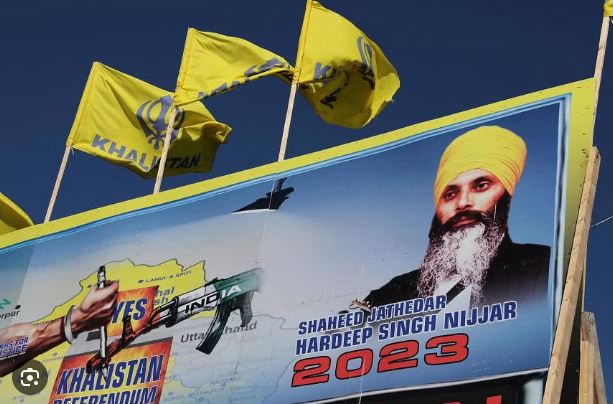A bitter row between India and Canada over the murder of a Sikh separatist is being felt in Punjab. An insurgency seeking a Sikh homeland of Khalistan, which killed tens of thousands in the 1980s and '90s, was crushed by India, but embers from the flame of the independence drive still glow.
Punjab Feels Heat of India, Canada Row over Sikh Separatist Leader’s Murder


A bitter row between India and Canada over the murder of a Sikh separatist is being felt in Punjab, where some Sikhs fear both a backlash from India's Hindu-nationalist government and a threat to their prospects for a better life in North America.
Hardeep Singh Nijjar, a plumber who left the north Indian state a quarter-century ago and became a Canadian citizen, was shot dead in June outside a temple in a Vancouver suburb where he was a separatist leader among the many Sikhs living there.
Canadian Prime Minister Justin Trudeau said last week Ottawa had "credible allegations" that Indian government agents may be linked to the killing.
India, which labelled Nijjar a "terrorist" in 2020, angrily rejected the allegation as "absurd", expelled the chief of Canadian intelligence in India, issued travel warnings, stopped visa issuance to Canadians and downsized Canada's diplomatic presence in India.
Sikhs make up just 2% of India's 1.4 billion people but they are a majority in Punjab, a state of 30 million where their religion was born 500 years ago. Outside of Punjab, the greatest number of Sikhs live in Canada, the site of many protests that have irked India.
An insurgency seeking a Sikh homeland of Khalistan, which killed tens of thousands in the 1980s and '90s, was crushed by India, but embers from the flame of the independence drive still glow.
In the village of Bharsinghpura, there are few memories of Nijjar, but his uncle, Himmat Singh Nijjar, 79, said locals "think it was very brave of Trudeau" to accuse Prime Minister Narendra Modi's government of potential involvement in the killing.

 বাংলা
বাংলা  Spanish
Spanish  Arabic
Arabic  French
French  Chinese
Chinese 
